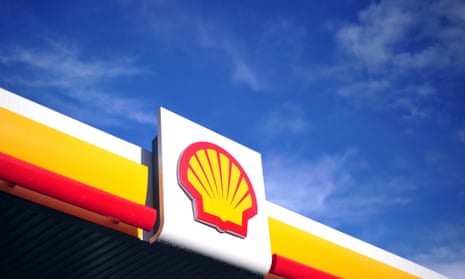Leading shares were lifted by a rise in commodity companies, as new bombing attacks by a Saudi Arabia-led coalition on Yemen sent oil prices to new highs for the year.
Brent crude rose more than 3% to $64.77 as the attacks raised new concerns about security of supply, amid signs of a fall in US production, which combined to prompt a 21p or 1% rise Royal Dutch Shell A shares to 2091.5p, while BP was 4.4p better at 484.15p.
Miners also supported the market, partly on hopes that the Chinese authorities will sanction further measures to boost its flagging economy in the wake of the latest disappointing PMI figures.
Antofagasta added 35p to 784.5p as it sold its water businesses in Chile for $960m.
Anglo American climbed 48p to £10.62 despite a mixed update. Iron ore production rose but copper production fell, and it said it planned to cut diamond production in response to lower prices.
Rio Tinto rose 94.5p to £29.58 and BHP Billiton added 48.5p to 1531.5p.
Overall the FTSE 100 finished up 25.43 points at 7053.67, despite the Chinese data as well as weak eurozone PMI figures and lower than expected UK retail sales. In the background were the twin concerns of Greece, with time running out to resolve its financial problems amid conflicting reports about the imminence of a deal, and the uncertainties of the UK election.
But utilities moved higher despite worries about what any new government might have in store for the sector. Centrica climbed 3.8p to 263.9p, SSE added 22p to £15.88, United Utilities was up 11p at 984.5p and Severn Trent finished 16p better at £21.67. Citigroup analysts said:
Public opinion pressure that has built up on the UK utilities, although exacerbated by the upcoming elections, was not caused by it. The CMA investigation will yield its provisional findings after the election and the gas exports from the US starting in 2016 can keep a cap on power prices, as well as allow the independent suppliers to maintain price competition.
The only scenario that we see as positive for utilities would be a Conservative-led government with (even a thin) majority. All other scenarios would be various degrees of adverse for the sector, with the worst-case scenario a Labour-led majority government. Even in a Conservative win, though, the CMA investigation still poses risks to the sector.
On fundamental terms (earnings and cash flow), we view National Grid as the most immune fundamentally to the election outcome and Centrica as the one likely to experience the most volatility. We do believe that the market is perhaps too optimistic about the immunity that SSE’s share price would enjoy from the election outcome.
The bank raised its price target for United Utilities from 900p to 950p, and for Severn Trent from 18.50 to £20.70. The bank has a sell rating on SSE, although with a price target lifted from £13.90 to £14.55, and is neutral on the other utility companies.
Elsewhere supermarkets recovered after Wednesday’s falls following Tesco’s record £6.4bn loss. Tesco itself added 2.65p to 225.3p while Sainsbury rose 4p to 267p as it unveiled plans to axe 800 jobs and Morrisons ended 3.1p higher at 193.5p.
There was even a smattering of takeover talk.
US group Aerie Pharmaceuticals, a specialist in treating glaucoma and other eye diseases, was the subject of vague bid rumours with AstraZeneca, down 33p at £48.30, Shire, 10p lower at £56.35, and a US peer all said to be interested. AstraZeneca is due to report results on Friday.
A number of companies went ex-dividend, including Legal & General, 12.1p lower at 265.1p, Old Mutual, down 6.4p at 231.1p, and Mondi, off 31p at £13.22.
The world’s largest advertising group WPP lost 24p to £15.72 after it reported a slowdown in first quarter like for like net sales.
Lower down the market, set top box maker Pace soared 115p to 447p after an agreed $2.1bn cash and share offer from US group Arris.
Component supplier Premier Farnell added 6.5p to 193p as Credit Suisse moved from neutral to outperform.
Cape climbed 12.25p to 265.75p as the industrial group announced a five-year deal with ExxonMobil to supply access, insulation and other services to the oil group’s Fawley refinery in the UK.
Finally North Sea exploration and production minnow Trap Oil slumped 57% to 0.3p after saying it needed new funding to avoid possible insolvency. The company, which reported a £44.4m loss for the year and is suffering losses from its producing Athena field due to the recent slump in the oil price, said:
Although we look forward to the drilling of [a well on the] Niobe [prospect] and despite the overhead reductions achieved, in the absence of additional funding the group has insufficient resources to continue operating beyond the short term.
The board..is urgently assessing a number of potential funding alternatives or asset sales.
In the absence of a viable funding solution, the board considers it is highly likely the company will become insolvent, and appropriate insolvency proceedings, such as administration or liquidation, will consequently need to be commenced.
Analysts at SP Angel said:
Today’s results from Trap Oil is a salutary lesson in that even when you reach production and generate revenues it is not always plain sailing.
